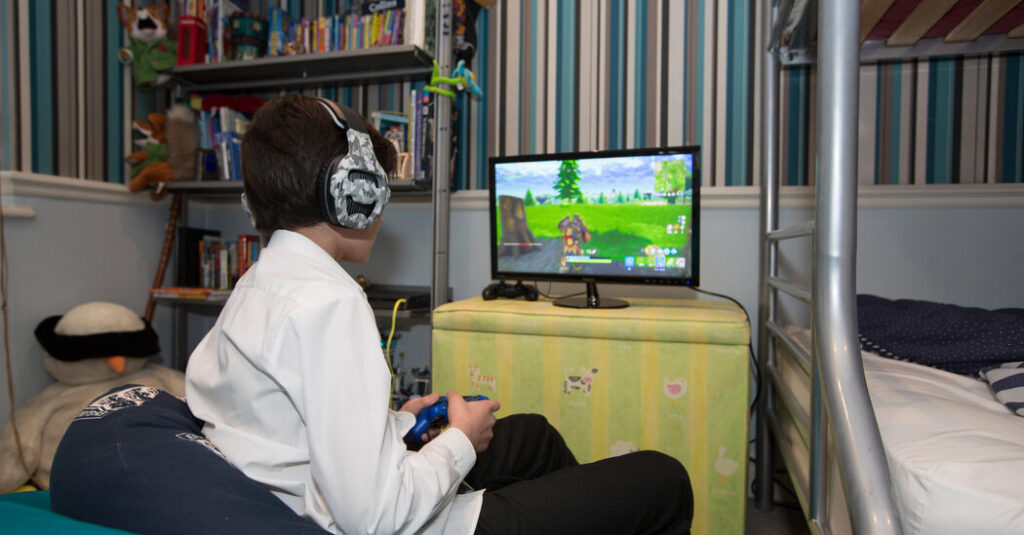
The Federal Trade Commission on Monday announced a $520 million settlement with Epic Games, the developer of popular video games like Fortnite and Fall Guys, over charges that the company illegally collected information from children and, separately, tricked millions of players into making unintentional purchases.
The deal involves record penalty amounts in two separate cases.
Epic agreed to pay $275 million to settle regulators’ accusations that it violated a federal law, the Children’s Online Privacy Protection Act, by collecting personal information from children under 13 who played Fortnite without obtaining verifiable consent from a parent. In addition, the company made parents “jump through hoops” to have their children’s data deleted and sometimes failed to honor parents’ deletion requests, the agency said in a legal complaint filed on Monday.
The amount dwarfs the $170 million penalty — the previous record for child privacy violations — that Google agreed to pay in 2019 over accusations that it illegally harvested data from children on YouTube and used it to target them with ads.
The F.T.C. action comes at a moment of heightened public concern over the mental health, safety and privacy risks that some popular social media networks and multiplayer video games may pose to children and teenagers. The record fine also sends a clear signal that the F.T.C. is following through on pledges from Lina Khan, the commission’s chair, to take a more assertive stance toward the tech industry.
California enacted a sweeping online children’s safety law in September that is scheduled to take effect in 2024. Last week, a tech industry trade group sued the State of California in an effort to block it.
More on Big Tech
- Amazon: The e-commerce giant agreed to a settlement with European Union regulators that will force the company to make changes to its practices but also allow it to avoid billions of dollars of potential fines.
- Microsoft: The Federal Trade Commission sued to block the company’s $69 billion acquisition of the video game maker Activision Blizzard.
- Meta: John Carmack, a pioneer of virtual reality technology, is leaving Meta after more than eight years at the company.
- Foreign Workers: As cutbacks batter the tech industry, some foreigners on work visas are facing a daunting prospect: having to leave the United States unless they are hired within 60 days of being laid off.
The California law came one year after Britain instituted comprehensive online protections for minors. Last year, as British regulators were developing that effort, Google, YouTube, Instagram, TikTok, Snap and other major platforms announced new safeguards for younger users worldwide. Congress is also working to boost online safety for youngsters.
Introduced by Epic Games in 2017, Fortnite now has more than 400 million players. Since then, it has generated billions in revenue largely by selling virtual accessories, like costumes and dance moves, to players for their avatars and through consumer product deals for products like Fortnite-branded Halloween costumes and action figures.
Regulators also accused Epic of causing “substantial injury” to children by enabling live voice and text chats by default, and by matching children and teen players with adult strangers on Fortnite teams, leading younger users to be the subjects of bullying, threats and harassment.
As part of the proposed settlement, the agency will require Epic to adopt high-privacy default settings for children and teens, including turning off live text and voice chats by default for younger users.
Epic also agreed to pay $245 million to refund consumers following accusations that it used manipulative online practices, known as “dark patterns,” to trick players of all ages into making unintended purchases. Among other things, Fortnite’s user interface had a counterintuitive, inconsistent and confusing layout that led users to incur charges with the press of a single button, regulators said in a separate complaint.
Players could be charged while trying to activate the game from sleep mode or while the game was loading a screen, the complaint said. Children ended up racking up unauthorized charges without their parents’ knowledge. These so-called dark-pattern techniques resulted in hundreds of millions in unwanted charges for users, the agency said.
In a statement, Epic said that, in a fast-moving video game industry, longstanding industry standards were no longer enough to protect players.
“No developer creates a game with the intention of ending up here,” the company said in a statement. “We accepted this agreement because we want Epic to be at the forefront of consumer protection and provide the best experience for our players.”
This is a developing story. Check back for updates.
You may also like
-
Apple signs on to pledge to keep artificial intelligence safe, administration says
-
North Korean charged in cyberattacks on U.S. hospitals, NASA and military bases
-
CrowdStrike offers $10 Uber Eats gift cards as apology for botched update – report
-
U.S. regulators rush to team with foreign governments on AI as Biden prepares exit
-
China touts 'relative immunity' to internet outage spreading from America

